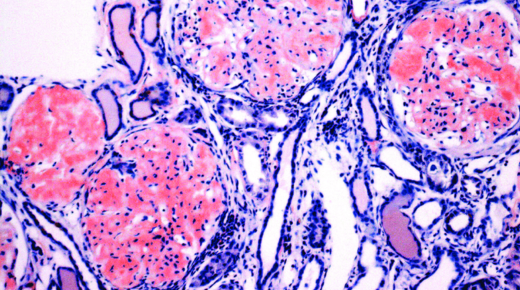Typically, when thinking about cardiac arrest, we will assume that only unhealthy people or individuals with chronic heart issues are prone to it. Have you ever thought about how healthy individuals experience this life-threatening event? Yes, even healthy individuals can get a cardiac arrest, further, let’s have a close look at why this is happening and how you can stay aware.
What is cardiac arrest?
In cardiac arrest, your heart will suddenly stop pumping blood, due to a malfunction in the heart’s electrical system. But this is distinct from a heart attack, which happens due to the blockage in blood flow to the heart. While during cardiac arrest, your heart will completely cease its function, and if left untreated it can result in life-threatening events.
Also, cardiac arrest and heart attack are two distinct conditions, and often we mix these terms. Simply, a heart attack is similar to a plumbing problem, arises due to blockages in the arteries, while cardiac arrest is more of an electrical issue. At times, heart attacks can result in cardiac arrest, but these both conditions will never happen together.
What are the symptoms you should not ignore?
Even though you are healthy, it’s crucial to be aware of symptoms of sudden cardiac arrest. Those common warning signs include:
– Chest pain or discomfort
– Palpitations or a racing heartbeat
– Dizziness or fainting
– Shortness of breath
If you are experiencing any of these symptoms, notably when performing physical activity, consider visiting the best heart specialist in Coimbatore immediately for better outcomes.
Can healthy people experience cardiac arrest?
Just being physically fit or living a healthy lifestyle doesn’t mean they won’t experience cardiac arrest. Even healthy people can experience this condition due to several hidden factors like,
– Genetic factors: Few people may have genetic conditions that will disturb the heart’s electrical system, even when there are no noticeable signs. Conditions like long QT syndrome or hypertrophic cardiomyopathy remain a primary cause for sudden cardiac arrest, notably under stress or exertion.
– Silent arrhythmias: Irregular heartbeats or arrhythmias are the main cause of cardiac arrest. Also, at times, arrhythmias are silent, that is an individual could never suspect that they are at risk until a cardiac arrest happens.
What is the role of physical exertion in cardiac arrest?
You may hear about athletes collapsing during games or individuals experiencing a heart issue when engaging in intense exercise. Also, staying active is crucial for heart health, and overexertion, notably for those with hidden heart conditions, which can trigger abrupt cardiac arrest.
Also, these days there is a pervasive thought that exercise can cause cardiac arrest. But exercise never causes cardiac arrest, moreover, exercise stands as a crucial factor for heart health, also you should listen to your body. When experiencing symptoms like chest pain, dizziness, or shortness of breath during exercise, it’s recommended to consult with your doctor.
Can stress lead to cardiac arrest?
We all know how stress impacts our heart health, but in extreme cases, it can also lead to cardiac arrest. Extreme physical or emotional stress can result in conditions such as, broken heart syndrome, or stress cardiomyopathy. This condition will disturb the heart’s electrical system, resulting in cardiac arrest.
Further, emotional events such as the loss of a loved one or severe anxiety can affect this condition, rarely it may lead to cardiac arrest. Also, this is more common among individuals with pre-existing conditions, it can happen to anyone under extreme emotional events.
What are the hidden heart conditions?
- Hypertrophic cardiomyopathy: It’s a genetic condition whenever your heart muscle thickens, making it tough for the heart to pump blood.
- Long QT syndrome: In this genetic condition, your heart’s electrical system will get disturbed, making it prone to dangerous arrhythmias.
Also, certain conditions won’t exhibit symptoms until reaching the advanced stage. Individuals may also have structural issues with their heart, such as cardiomyopathy or valve problems, and not know about them until a major cardiac event occurs.
Can a healthy lifestyle prevent cardiac arrest?
Maintaining a healthy lifestyle will only reduce your risk but will not assist in eliminating it. Certain factors like family history, genetics, and silent conditions mean that even those who seem healthy can still be at risk. Also, a heart-healthy lifestyle will reduce your chance of developing conditions that can result in cardiac arrest.
The easiest way to reduce your risk of cardiac arrest is by getting frequent screening. Further, frequent screening is also crucial for high blood pressure, cholesterol levels, and getting an ECG in case you have any family history of heart problems. Simply, diagnosing issues in their early stage can potentially save your lives.
What are the healthy habits to protect your heart?
You need to understand that certain causes of cardiac arrest are out of control, there are certain steps that you can take to maintain your heart health:
- Daily exercise: Try to do mild to moderate exercise for at least 30 minutes on most days of the week.
- Eat a balanced diet: Try to eat some heart-healthy foods like fruits, vegetables, lean proteins, and whole grains.
- Quit smoking: Smoking remains the biggest risk factor for heart disease and cardiac arrest.
- Limiting alcohol: Binge alcohol consumption may lead to arrhythmias and other heart problems.
How to act when someone around you collapsed with cardiac arrest?
Whenever you are in a situation where someone is unresponsive or collapsed, you should take quick action. Sudden CPR will highly increase the chances of survival. Further, take the patient to the best cardiology hospital in Coimbatore for better results.
– CPR: Doing chest compression is the crucial step in keeping someone alive till the medical team reaches the spot. Push fast and hard in the center of the chest at a rate of 100 to 120 compression per minute.
– Use an AED: An automated external defibrillator will help in restarting the heart by delivering a shock to restore a normal rhythm. These days AEDs are available in several public places for emergencies. If there are AEDs in that situation, never hesitate to use them.
Final thoughts:
In conclusion, we can say that even individuals who are maintaining their health can also get cardiac arrest. Also, a healthy lifestyle helps in reducing other factors like hidden heart conditions and genetics can still put you at risk. Frequent screenings, being aware of warning signs, and knowing how to react in emergencies are the finest ways to protect you and the people around you.




